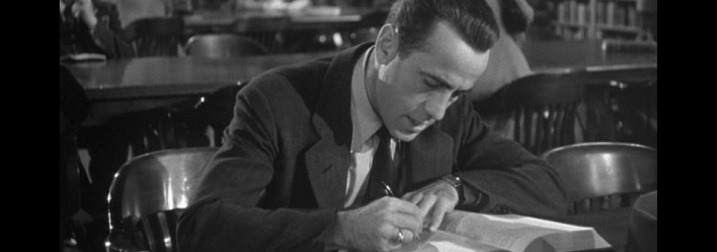I’m really excited about this year’s Oscars. Billy Crystal as host—yay! I’ve dusted off the popcorn maker and read all the movie gossip about who’s going to win what.
Word on the street is “The Artist” will win Best Picture. But if Omer Mozzaffar, “How to Win An Academy Award”, is correct this most coveted prize goes to the story that follows the hero’s journey. You know, hero gets the call to action, resists but capitulates, goes on a journey, encounters the evil one, does battle, yada yada.
But wait a minute, “The Artist” is very French and the French don’t give a rip about the hero’s journey.

Give It Your Worst
My hero the sublime Elmore Leonard inspired this latest writing contest: write one sentence breaking all or as many of Leonard’s ten rules of writing as you can. In case you’re unfamiliar with his rules, here they are:
- Never open a book with weather.
- Avoid prologues.
- Never use a verb other than “said” to carry dialogue.
- Never use an adverb to modify the word “said.”
- Never use the words “suddenly” or “all hell broke loose.”
- Keep your exclamation points under control.
- Use regional dialect, patois, sparingly.
- Avoid detailed descriptions of characters.
- Don’t go into great detail describing places and things.
- Try to leave out the part that readers tend to skip.
Send your entry by midnight February 1, 2012 along with your postal address to: Day6@CBC.ca, The subject line should read “Elmore.”
Good luck and may the worst writer win.
Why Reading Jack Reacher Novels Makes Us Better People
Turns out reading Lee Child may be more beneficial than reading back issues of The Wall Street Journal or that three volume biography of Benjamin Franklin your brother-in-law gave you for Christmas.
Anne Kreamer makes a compelling argument for reading fiction in The Harvard Business Review: http://blogs.hbr.org/cs/2012/01/the_business_case_for_reading.html
Stories are like computer simulations only for understanding human nature. Our brains actually fire up as if we were actually experiencing Stories teach us to empathize with people who are different from us, and as a result of reading fiction we become more open-minded and socially intelligent.
For those of you who know me personally and are wondering why I’m reading The Harvard Business Review——it’s all research, baby.
Golden Globes 2012
Spoiler alert: if you haven’t seen “Young Adult”, my thoughts won’t make any sense and they’ll blow the big undeserved plot surprise.
Was it my imagination or did Charlize Theron look super disappointed for not winning the Golden Globe for Best Actress in a Comedy? She was brilliant as Mavis Gary in Young Adult— both funny and horrifying as the high school prom queen who never grew up.
If there’s fault with the story, it’s not with the acting but with the writing. Diablo Cody, the very talented screenwriter of Juno who wrote Young Adult, has received a lot of praise for her out-of-the-box story. Cody claims she set out to break all the tropes about this kind of comedy: beautiful bitch goddess forced to face her weaknesses plus big city folks who go back to their humble beginnings and are humbled. Only it doesn’t work.
It did work for me until we get to the baby naming party and then it’s what the what??? Ms. Cody totally did not set us up for the information bomb she sets off at the party.
C’mon Diablo, it’s one thing to break rules but you just bumped me out of the fictive dream here. If Mavis was indeed pregnant then her ex-boyfriend is not only clueless, he’s heartless. And why does Mavis never react to the countless baby references until we get to the party? I call foul.
Mysteries—Why I Can’t Get Enough of Them
Why do I read about people murdering each other??? I’m not a sociopath, I swear.
Okay, I admit to a little neurosis. And there’s nothing I like better than to read about dysfunctional relationships. Parents, siblings, children, not to mention in-laws—then there’s bosses, bitchy co-workers, that guy at the neighborhood association who complains to the board if your grass grows higher than three inches. Take dysfunction out to its suburban reaches and you have murder. And don’t I love to see a boss get what’s coming to him.
But the murder is only the starting point. Because no matter what kind of bastard got his comeuppance and how well deserved it was, the murderer always, always gets caught. And it’s like dude, couldn’t you have begged off the Christmas holiday / quit the job / broke up with her? In a mystery, we can count on the detective finding the murderer and bringing him to justice.
No matter how many blinds the murderer constructs, no matter how many theories the detective entertains, eventually she uncovers the truth. Robert McKee, in his book, Story, said: “In the ritual of story we continuously see through faces and activities of characters to depths of the unspoken, the unaware.” As we go through life, we realize how inscrutable we all are. What we show our co-workers or even our intimates is not the raw, unembellished self. The mystery’s conceit is to peel away those concealments. I can’t think of anything more satisfying.
James N. Frey, author of How to Write a Damn Good Mystery, has this theory: “In a mystery, death which to all of us seems so arbitrary and irrational, is made logical and rational. The hero, using reason, triumphs over irrational death in a symbolic way.” Jim quotes Robert Parker (beloved writer of the Spenser series) as saying, “the mystery novel is one of the last refuges of the hero.” In our culture of disgraced leaders we need more stories of people overcoming obstacles, even danger, to right a wrong.
